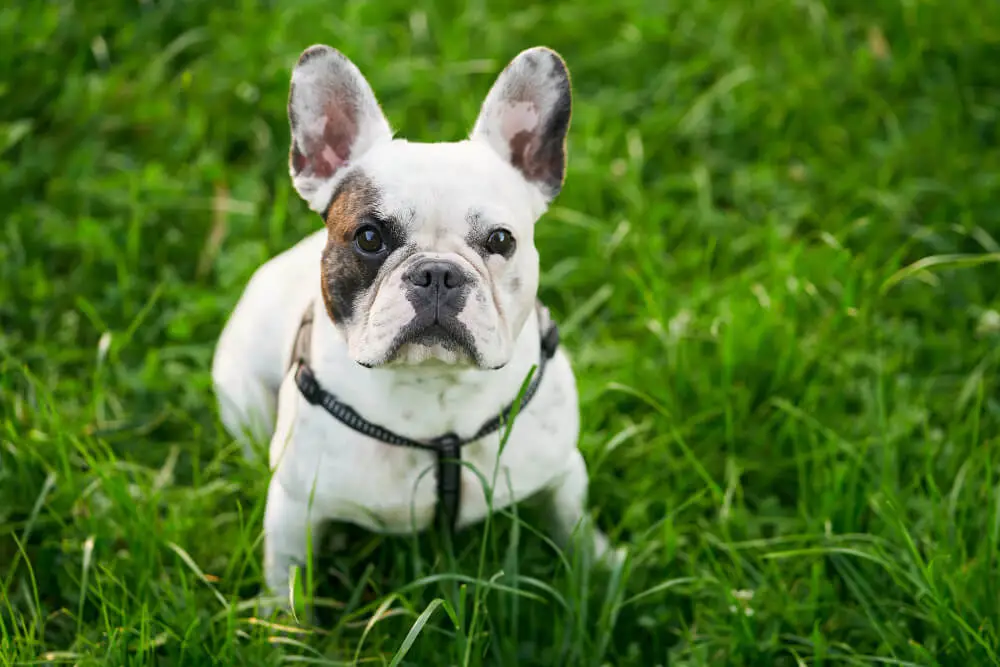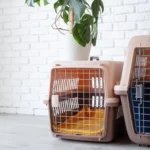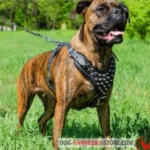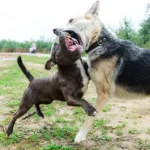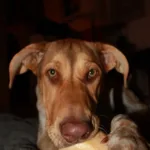French Bulldogs are lovable and charming companions, but sometimes, they exhibit peculiar behaviors that shock you. One such behavior is the tendency to eat poop, also known as coprophagia. Is your French bulldog eating poop? Explore why French Bulldogs engage in this behavior, its potential health implications, and effective prevention and training strategies.
Reasons Why French Bulldogs Eat Poop
French Bulldogs may eat poop due to a variety of reasons, including:
- Natural Instincts: French Bulldogs, like their distant ancestors, may have retained the instinct to scavenge for food, leading them to consume feces. They might also hide their waste to protect their territory or avoid predators.
- Nutritional Deficiencies: A diet deficient in vital nutrients may cause your French Bulldog to eat poop as they instinctively try to supplement their nutritional intake. Thus, it is essential to ensure you feed your French bulldog the proper nutrition. Here are some insights on raw foods for French bulldogs.
- Digestive Issues: If your French Bulldog suffers from digestive problems, they might not be able to absorb nutrients effectively, leading to coprophagia. Conditions like HCL acid deficiency may cause your dog to crave non-food items, including feces.
- Behavioral Issues and Environmental Factors: Coprophagia can also stem from behavioral issues like attention-seeking or boredom. If your Frenchie is left alone for long periods or lacks mental stimulation, they could resort to this behavior. Environmental factors such as unclean surroundings can also contribute to this issue.
- Medical Conditions: Certain medical conditions, including parasites, disease, or the side effects of medications like steroids, may cause your dog to eat feces. It’s crucial to consult a vet to rule out any underlying conditions.
- Hunger, Boredom, Stress: Feelings of hunger, boredom, or stress may result in your French Bulldog eating poop. It’s essential to provide your dog with a balanced diet, regular exercise, and a stress-free environment to prevent these issues.
- Exploration and Scavenging: Puppies, in particular, may eat feces as part of exploration and learning about their environment. It can also be an extension of their natural scavenging behavior.
Please consult your veterinarian if your French Bulldog continues to eat feces despite implementing prevention strategies, as it could be a sign of a more serious issue.
Health Implications
While the behavior of eating poop may seem harmless, it can have several health implications for French Bulldogs. Some potential risks include:
- Increased risk of contracting parasites or infections
- Nutritional imbalances or deficiencies
- Digestive disturbances and gastrointestinal issues
- Exposure to harmful toxins or chemicals present in the feces
It is crucial to address this behavior to ensure your French Bulldog’s overall health and well-being.
Prevention Strategies
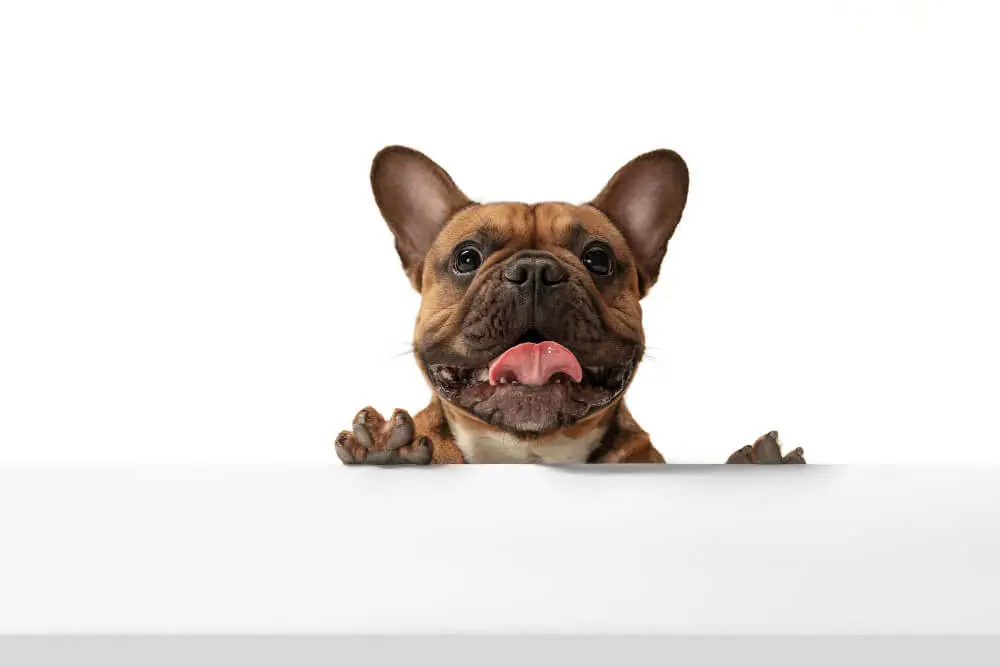
To prevent and discourage coprophagia in French Bulldogs, consider implementing the following strategies:
- Proper Nutrition: Providing your French Bulldog with a balanced diet can help curb their tendency to eat feces. Their meals should be rich in nutrients that meet their dietary needs and promote their overall health and well-being.
- Clean Environment: Regularly cleaning up after your French Bulldog can reduce their access to feces and thus the chances of them engaging in coprophagia. A clean environment is not only important for hygiene but also to discourage this undesirable behavior.
- Dietary Supplements: Certain nutritional supplements can help improve your dog’s digestion and nutrient absorption, reducing their urge to seek nutrients from feces. Always consult your vet before introducing any supplements into your dog’s diet.
- Training and Commands: Training your French Bulldog to respond to commands like “leave it” or “drop it” can be highly effective in preventing them from eating poop. Consistent training and positive reinforcement can help instill good behavior.
- Exercise and Mental Stimulation: Regular exercise and mental stimulation through games and toys can keep your French Bulldog entertained, reducing their chances of resorting to poop-eating out of boredom.
- Consult a Vet: If your French Bulldog continues to eat feces despite your efforts, it’s essential to consult a vet. They could identify underlying health issues, offer professional advice, and provide suitable treatment options.
- Watch Out for Poor Digestion: If your French Bulldog has a weak digestive system, they might not be fully absorbing the nutrients from their food, leading them to eat poop. Feeding them easily digestible food can help address this issue.
- Add Pineapple to Their Diet: Pineapple contains enzymes that, when excreted, give the feces an unappealing taste to dogs. Adding small amounts of pineapple to your dog’s diet can deter coprophagia.
If you have tried the above, but the French bulldog eating poop problem persists or becomes concerning, consult your veterinarian for further guidance and professional intervention.
Training Tips
Training can also help address the issue of French bulldog eating poop. Here are three training tips.
- Keep Them on a Leash During Walks: Keeping your French bulldog on a leash during walks gives you more control and can prevent them from picking up and eating feces.
- Reward Good Behavior: Reward your French Bulldog with treats or praise when they avoid eating feces. This positive reinforcement can encourage them to maintain good behavior.
- Treat Anxiety: Just like humans, dogs can experience anxiety, which may lead to coprophagia. Thus, treating any underlying anxiety or stress can help prevent this behavior.
When to Seek Veterinary Help
While coprophagia is relatively common in French Bulldogs, it is essential to monitor their behavior and seek veterinary help if:
- The behavior persists despite preventive measures and training efforts
- Your French Bulldog exhibits signs of gastrointestinal distress or other health issues
- The coprophagia is accompanied by other abnormal behaviors or symptoms
Your veterinarian can assess your French Bulldog’s overall health, conduct necessary tests, and provide appropriate treatment or guidance to address this behavior.
Signs Your Frenchie May Have Contracted a Health Issue from Eating Poop
If your French Bulldog continues to engage in coprophagia, they may be at risk of contracting health issues. It’s essential to seek veterinary help if you notice any of the following signs:
- Intestinal Parasites: Signs of intestinal parasites may include visible worms in their stool, bloated stomach, or weight loss.
- Tiredness: Unusual fatigue or lethargy might indicate underlying health problems related to their coprophagia.
- Decreased Appetite: Your French Bulldog may lose interest in their usual food, leading to a decrease in appetite. This could indicate problems with digestion or nutrient absorption.
- Vomiting and Diarrhea: Eating feces can expose your dog to harmful bacteria and viruses, leading to vomiting and diarrhea.
If you notice these signs, seek veterinary help to ensure your French Bulldog receives prompt treatment.
Winding Up
Understanding the reasons behind French bulldog eating poop is essential for responsible pet ownership. By implementing preventive measures, ensuring a balanced diet, providing mental and physical stimulation, and seeking professional help when necessary, you can address this behavior and promote the well-being of your beloved French Bulldog. Remember, patience and consistency are key; with proper guidance, you can help your furry friend overcome this peculiar habit.
